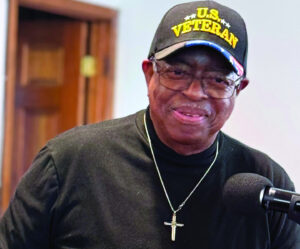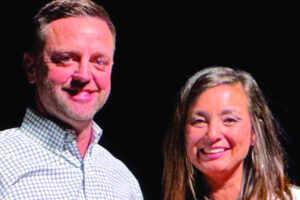Overcoming addiction: From rock bottom to recovery
RUSSELLVILLE — Kameron Bryan remembers when addiction cost him nearly everything.
After 12 years addicted to meth, alcohol and marijuana, he faced losing his family, his home and his future. His wife gave him an ultimatum: seek help or lose them.
His turning point came when his wife “kicked me out of the house, told me I had to go somewhere. I didn’t know where I was going to go.”
He turned to the Dream Center, a residential recovery program that gives men a structured environment where they can focus on rebuilding their lives.
By the time he had been in the program a year, Bryan said his life began to shift when he finally let go of his pride. Today, he is the kitchen director at the center.
He said the program ensures participants have what they need to get through the day.
“I know what it’s like to go without, and I don’t want them to experience that when they come here,” he said.
Courtney Vincent, a staff member, also experienced the program firsthand before it became men-only. Her six-month residential treatment gave her insight into the challenges recovery brings.
Vincent said the center follows a structured daily routine that includes meals, devotion, chores, classes, and free time.
Evenings consist of dinner and a class covering biblical teaching, life skills and practical guidance.
She explained the program helps men navigate both faith and daily responsibilities.
“Our ministry is to help these men, so that’s what God has called us to do,” she said.
Vincent said admitting you need help can feel overwhelming.
“Making that first call is hard. It’s the hardest choice I’ve ever faced, and it can feel overwhelming in the moment, but it’s also the best choice I’ve ever made,” she said.
Not every participant completes the program.
Vincent said a 100% success rate is unrealistic, but those who commit can reunite with family, find jobs, and build stable lives.
Others return after relapse for a second chance.
Chris Royster, outreach director, said addiction and homelessness often overlap.
Royster, who said his main problem was a meth addiction, said, “I’ve lived a life of addiction. Drugs brought me to rock bottom.”
After losing stability, he spent three years living in the woods.
Even after a relapse, staff continue to support participants.
“They don’t put up a wall. They keep talking to you and caring about you. They work with you the whole way through,” he said.
Royster and other staff connect people to food and clothing resources, including Shepherd’s Table and Faith Mission Outreach.
“There’s a lot of homeless people out here, and they walk up all times of day,” Royster said. “We make sure that they get the clothes that they need, the jacket they need. We never turn them away,” he said.
Bryan urges anyone struggling to reach out.
“If you want to do something different in your life, it starts with your decision. If you need help, just call. Just reach out,” he said.
Food assistance available
Every week, the Dream Center holds food giveaways on Tuesdays and Thursdays at 2 p.m., open to anyone in need.
Courtney Vincent, a staff member, said households can come once every two weeks. The center typically serves five families each day.
She explained that people often arrive early to ensure they can receive assistance, since demand sometimes exceeds what the center can provide.
Recently, the Dream Center distributed about 7,000 pounds of food, including proteins, cereal and canned goods, to roughly 160 local households.
“Our place is to feed people, and so we take that ministry very seriously,” Vincent said. “We feel like God has called us to help our community, and this is the way we can help our community right now.”
For donations, volunteer opportunities or other information, call 256-332-4732.









